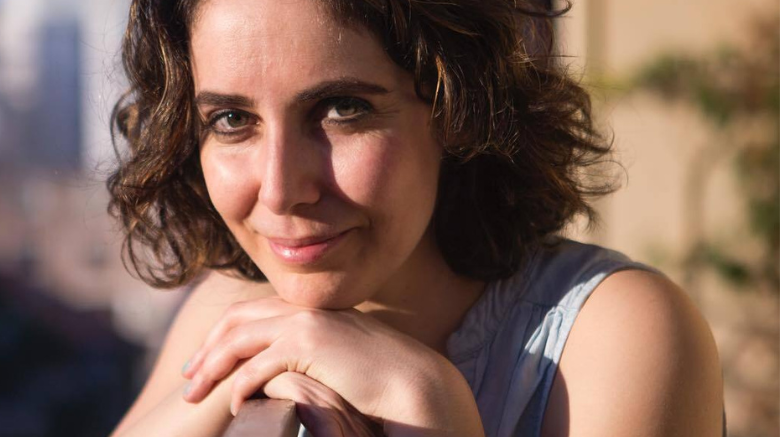Itab Azzam was born in Swaida, a small village in Syria, where she lived until the age of 18, when she moved to Damascus to pursue her studies in English Literature. “That’s when my life completely changed,” she recalls. In the Syrian capital, she met people from different backgrounds, and her feelings about injustice in society, particularly against women, became stronger.
In 2010, she applied for a scholarship for a Masters degree in the UK. By the time she was accepted and had to travel in 2011, the Syrian uprising had started, but she left the country with the plan to return. “I never wanted to leave. I always hoped that things would get better and we would be able to go back, but now it seems like it’s almost impossible. It’s incredibly sad coming to the realization that I’ll never go back,” she says from her home in London, United Kingdom. While she now has British citizenship and is aware of her privileges, she believes the experience of forced displacement shaped her both professionally and personally: “You are always a refugee. It’s not about a piece of paper; it’s the feeling of losing your roots.”
The recognized filmmaker and theater producer started her career in Syria as a translator and producer for international media. She worked on The Light in her Eyes (2008), an independent documentary on women’s experiences attending a Quranic school, and was part of the BBC team that produced the award-winning series Syrian Schools (2009). From her new host country, she also worked on the award-winning film Queens of Syria (2014) and the BBC Two documentary series Exodus: Our Journey to Europe (2015-2017), which won Bafta and Emmy awards.
While her professional life had been linked to telling stories from fellow women in Syria, she felt the need to do more. In 2013, she conducted a theater project with Syrian refugee women in Jordan. “I was conflicted at the beginning. I asked myself, ‘is this the most useful thing to do, an art project for refugees?’. Anyway, we did the project and it was absolutely life-transforming for the women and for myself. I witnessed a huge amount of trauma and suffering. Most of the women told us they really needed to feel human again because the experience of displacement, poverty, homelessness, and losing friendships makes people feel like they are not human because what makes us human is our community, our friends, our sense of worth, and they lost everything. With this project, women who had experienced huge losses felt that that was what they really needed. And I just felt like I wanted to do more of that.”
Most of the women told us they really needed to feel human again because the experience of displacement, poverty, homelessness, and losing friendships makes people feel like they are not human because what makes us human is our community, our friends, our sense of worth, and they lost everything. With this project, women who had experienced huge losses felt that that was what they really needed. And I just felt like I wanted to do more of that.
Itab led another successful art experience with refugee women in Beirut in 2014, which later resulted in the book Syrian Recipes from Home, published in 2017. In 2019, in the context of the COVID-19 pandemic and her pregnancy, she decided to formalize her work in this field. With a friend and colleague based in the UK, she cofounded Makani, an organization that works with refugee women to overcome trauma, fight for their rights, and transform their lives through therapeutic art projects, campaigning, and economic empowerment. They currently have projects in Lebanon and the UK, combining crafts, film, and art.
“I strongly believe that women are the most affected by war and conflict. We, as women, understand what other women go through. That’s why it’s powerful and important for women to be in these leadership positions,” Itab says about her women-led organization focused on their peers. Reflecting on her professional career, she adds: “I couldn’t do anything else. Seeing the trauma and suffering that Syria has gone through has completely shaped my experience. It’s something I cannot ignore.”
In her role as Makani’s CEO, she’s felt the hardships of being a foreigner, in many cases not being taken seriously in an NGO sector dominated by people with no lived experiences, mostly from the Global Minority. However, she’s optimistic: “It’s getting better, but it’s really hard. We are mostly seen as victims rather than empowered people who want to affect change,” she says. “Asylum Access and the Resourcing Refugee Leadership Initiative (RRLI) are doing a great job at bringing refugee leadership to the table. This is an incredibly important work. Refugees and people with lived experiences are the best people to do these jobs. If you see the work of grassroots organizations led by refugees, the funding is little but the impact is huge because they know how to do the work effectively.”
Read more about other refugee women leaders like Itab: 5 Refugee Women Leading Change for Forcibly Displaced Communities

